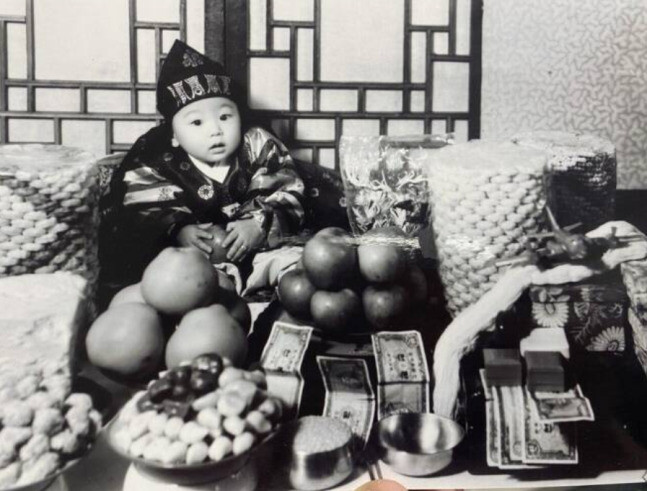Facing real problems in the region, DP and Moon administration remains mired in territorial disputes
A conflict between South Korea and Japan over disputed islets claimed by both Seoul and Tokyo continues to worsen as South Korea’s leftist administration hypes anti-Japanese sentiment for domestic political gain. South Korea and Japan held unsuccessful working-level diplomatic talks in Seoul on Monday amid a renewed spat over the Dokdo islets, which are called Takeshima by Japan.
The two sides failed to agree on various issues under discussion, which were mostly related to South Korea’s historical grievances against Japan – rather than pressing current issues such as North Korean missiles and nuclear weapons.
This Dokdo/Takeshima dispute caused the cancellation of a post-meeting press conference following a trilateral vice-ministerial level meeting between the two countries and the United States the previous week.
Kim Chang-yong, South Korea’s police commissioner general, visited the South Korea-controlled Dokdo islets in the East Sea shortly before the important trilateral meetings held in Washington D.C. The top diplomats were supposed to hold a joint press conference, but the U.S. side ended up holding a solo press conference. The Japanese side boycotted the briefing after Tokyo lodged a strong protest over Kim’s visit to Dokdo.
The South Korean Foreign Ministry released a statement on Monday that said Lee Sang-ryol, the ministry’s director general for Asian and Pacific Affairs, and his Japanese counterpart, Takehiro Funakoshi, met but failed to narrow their differences on various historical issues. The ministry argued that the Japanese side repeated the same argument that it previously made without going into details. The South Korean news media reported that the Japanese side made an issue of its sovereignty over the islets and the police commissioner’s recent visit.
The ministry explained that “Lee made it clear that Seoul can never accept any Japanese claim to Dokdo.” According to the ministry, Lee and Takehiro discussed other issues, such as Japan’s wartime forced labor and sexual slavery, which are other issues about which the two governments differ fiercely. The South Korean media reported that the two sides remain stuck over these historical issues.
Meanwhile, over the weekend, the leader of the ruling Democratic Party apologized to Yoon Seok-yeol, former Prosecutor General and the presidential candidate of the main opposition People Power Party (PPP), for making a false accusation against Yoon.


Song Young-gil, the head of the DP, attended a seminar on November 19, and discussed a photo of Yoon’s first birthday party that the candidate posted on his social media. “Yoon is the son of a wealthy Yonsei University professor who is so close to Japan that he would put a Japanese Yen currency note on the first birthday party table,” Song said. “Yoon graduated from Seoul National University Law School, passed the bar exam, and served as Prosecutor General.” Song said that it is absurd that Yoon, who always lived as part of the establishment, is calling for fairness and justice.
Song then compared Yoon with Lee Jae-myung, the presidential candidate from the DP. Song said that Lee was born in a poor family of nine and worked as a factory worker when he was a teenager. Song added that Lee received a general equivalency diploma to go to Chung-Ang University and then passed the bar exam. “Lee did not go on the path of becoming a judge or a prosecutor, but he chose to become a human rights lawyer. I hope everyone sees what kind of life that Lee has been through.”
However, it turned out that the currency note on the birthday table was a banknote issued by the Bank of Korea. The DP released a statement saying, “Song expresses his regrets over his comments related to the banknote on candidate Yoon’s first birthday table.”
President Moon Jae-in and leftists have portrayed conservatives in South Korea as pro-Japanese representatives of “deep-rooted evils” who should be removed from the country. They use this anti-Japan sentiment to solidify their supporters. Since the beginning of his term, the Moon administration discarded the government’s earlier agreement on the sexual slavery issue that was signed by the former Park Geun-hye administration and then the Japanese government. It even said it would consider boycotting the Tokyo Summer Olympics Games, even though it ultimately did not due to strong backlash from athletes and fans.
Lee Jae-myung also has provocative views on Japan. “The Republic of Korea’s establishment process was different from other countries’ process,” Lee said in July when he first announced that he is running for the president. “We were not able to take care of the pro-Japanese issues, and those pro-Japanese people collaborated with the U.S. occupation forces and kept their governance system.” He argued that the country did not begin in a “clean way.”
The Chosun Ilbo newspaper ran an editorial on Monday and said that the South Korean liberals do not care about what kind of relationship with Japan is needed to stabilize South Korea’s position in the middle of a hegemonic competition between the United States and China. The newspaper argued that the recent slip of the tongue by the head of the DP showed the true face of South Korean liberals.
Anti-Japanese sentiment runs deep in South Korea, and today’s liberals look unafraid of using it in the presidential election, no matter the cost.


